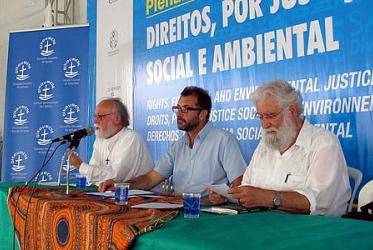Displaying 241 - 260 of 280
WCC honours the legacy of Mandela
06 December 2013
Assembly renews churches’ commitment towards justice and peace
08 November 2013
Dialogue on politicization of religion and rights of minorities
17 September 2013
Cold War politics and the world’s churches
04 September 2013
Concern and solidarity for Bangladesh
17 May 2013
WCC general secretary challenges Christians to reject concept of ”enemy”
12 September 2012
Christian and Muslim leaders visit Nigeria
25 May 2012










